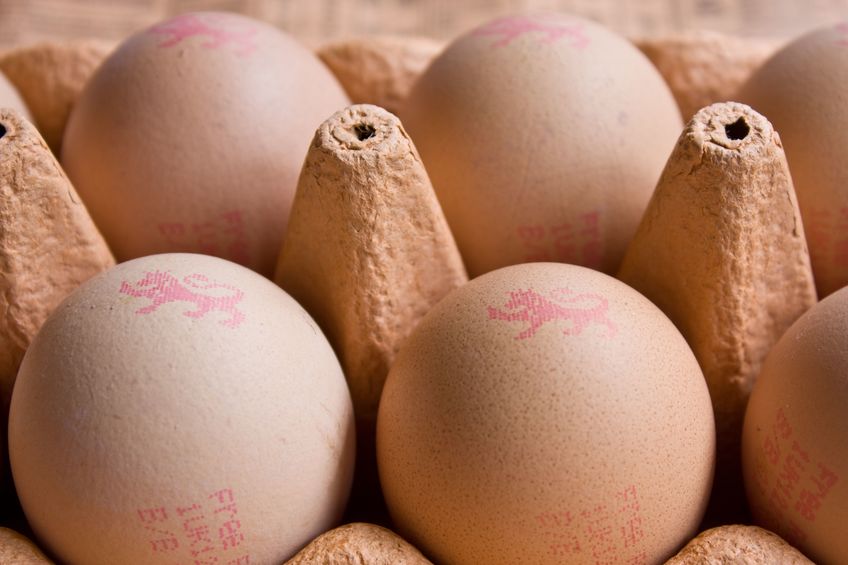
Egg industry leaders have attacked the failure to include agricultural workers in a proposed list of critical labour after Brexit.
The Migration Advisory Committee (MAC) published its recommendations following a review of the shortage occupation list (SOL).
The MAC says its recommendations cover some nine per cent of jobs in the labour market, but the British Egg Industry Council has urged the government to ignore the recommendations.
The BEIC has previously warned that EU migrants currently account for up to 60 per cent of people employed in UK packing centres and as many as 40 per cent of those employed on farms, making access to labour vital after Brexit.
However, the MAC has not included agriculture on its critical list. The BEIC has expressed disappointment at the MAC's recommendations.
“BEIC was left extremely disappointed and surprised that the MAC has failed to recognise the need for the agricultural sector to continue to have access to migrant labour from the shortage occupation list,” said the group.
“Despite our representations to the review, the recommendations ignore the fact that around a third of people working in the egg sector come from abroad and, with Brexit on the horizon, our ability to continue to produce an affordable and healthy food needs continued access to overseas labour, particularly given that some jobs require staff on site to protect animal welfare.
“Without demeaning some of the roles the MAC has included in their review, food production is arguably the most important industry and has not been given the respect it deserves.
“We are hopeful the government will not take forward these recommendations that could hamper food production in the UK.”
'Staggering that farming has been ignored'
The NFU has been very vocal in its criticism of the recommendations.
NFU president Minette Batters pointed out that, whilst farming had been left off the list, workers who had been included on the list included dance choreographers and artists.
She said that during a consultation process the NFU had pointed the MAC review to a range of critical jobs that many non-UK workers performed on farms at all skill levels, including dairy herdsmen and poultry technicians.
She said she was very disappointed with the outcome of the review.
“The NFU is staggered that farming has been ignored in this way and that the MAC has failed to recognise the needs of our industry, and the implications for shoppers wanting to continue to buy affordable, high quality British food,” she said.
“The consultation was poorly managed, with events arranged at just 48 hours’ notice. These events were supposed to gather evidence on those occupations in shortage across all skill levels, highlighting the need for experience, aptitude and knowledge.
“In a post-Brexit world, access to overseas workers may be restricted. If we can’t get some of these permanent roles on the shortage occupation list, we will be limited purely to UK-based workers to fill those jobs when we know, with the country at near full employment, the numbers are just not there.
“There are still options available to us through the new immigration policy the Home Office is designing, and the NFU will continue to campaign to raise awareness of these issues with MPs.
“We urge government to look carefully at these recommendations and add the roles we desperately need so the critical jobs that many non-UK workers perform on our farms at all skill levels are accounted for.”
'Needs labour all year round'
In October last year, BEIC chief executive Mark Williams warned that a trial post-Brexit agricultural workers scheme announced by the government would not be enough for the UK egg industry.
“The egg industry needs labour all year round on farms and in packing centres. Therefore, we will continue to lobby for a scheme that can provide this,” he said.
Mr Williams had previously said that availability of labour was vital to the industry. Following the 2016 referendum, he said, EU workers had started heading home.
The industry was trying to promote careers in the egg industry, but he said some British people were not necessarily keen on the hard work involved in the agricultural industry.
He said that, following the referendum, the BEIC had conducted a survey, which showed that between 55 and 60 per cent of those working in packing centres were from other EU countries.
Between 35 and 40 per cent of those working on farms were from other EU countries.
The Migration Advisory Committee was asked by the government to examine which occupations were in shortage and make recommendations as to which occupations should be included on the SOL.
In making its recommendations, the committee said some occupations had been added to the list – veterinarians, web designers and architects.
It said that nine per cent of jobs in the labour market were now included on the list, compared to one per cent previously.
The committee has recommended broadening the SOL to include all roles in occupations such as medical practitioners, nurses, programmers and software development professionals.
This was recognition of the increasing difficulty in filling such roles, said the committee.
MAC chairman Professor Alan Manning said: “Today’s labour market is very different to the one we reviewed when the last SOL was published in 2013.
“Unemployment is lower and employers in various industries are facing difficulties in finding skilled people to fill their vacancies.
“That is why we have recommended expanding the SOL to cover a range of occupations in health, information and engineering fields.
“However, our recommendations are clearly only applicable under the current immigration system, while EU free movement remains.
“We are recommending a full review of the SOL once there is a clearer picture of what the future immigration system will look like,” he said.
Farming leaders are hoping that agricultural workers can still be added to the list.
